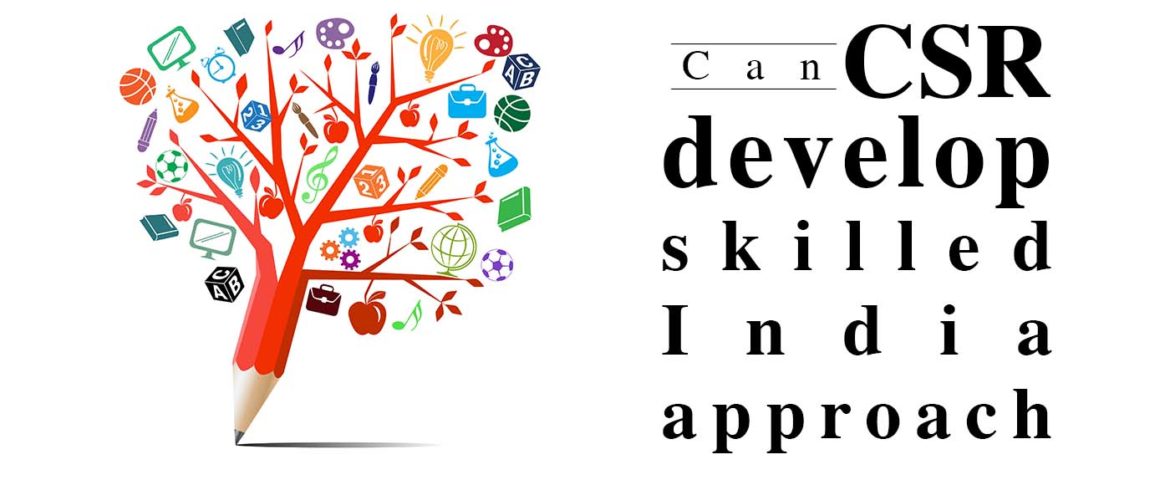Skills are the key driver of the modern economy. Vocational education and training is aimed at enhancing the employability of an individual, by facilitating the individual’s transition into the labor market.
enhancing the employability of an individual, by facilitating the individual’s transition into the labor market. Changing skill requirements, new technologies and new kinds of jobs have placed greater emphasis on skill training, which is increasingly becoming a process of lifelong learning.
A combination of factors has made skill development an important policy priority for India. It starts with demographics. India is a cusp of reaping its demographic dividend. Its population pyramid is expected to “bulge” in the 15-59 years group over the decade. By 2020, the average age of the Indian population will be 29 years, as against 40 years in USA, 46 years in Europe and 47 years in Japan. There is a narrow window to harness the potential of India’s young population. However, India’s training capacity is limited. Though, there is no unanimity on the exact numbers, it is estimated that about 50 lakh young people enter the workforce every year. Yet the current capacity of India’s industrial training institutes (ITI), which still form the backbone of India’s vocational training ecosystem, is only 25 lakhs per annum. Therefore, enhancing capacity and scale of skill training programs, is an urgent policy priority for India.
On the demand side, skill gap studies commissioned by National Skill development corporation suggest that 10.9 core incremental human resources, will be required across 24 high growth sectors by 2022. Therefore, while there is a demand for skilled workers in industry, it is vital that training must be high quality and relevant to industry requirements.
While skill training is being actively promoted by the government and its partners in the private sector and industry, it is not an aspirational career choice amongst the youth .It is perceived as fall back option, rather than a mainstream career choice. Formal education still remains the top choice for young people. This bias is also seen amongst employers who pay higher salaries to entry level engineers, compared to experienced workers who have undergone vocational training. Therefore, along with issues related to capacity, quality and employability-attitudinal factors about skills training is perceived by both potential trainees and employer’s needs to be addressed.
The complexity of these challenges, combines with several failures which characterises India’s vocational training ecosystem, make a strong case for the state intervention in this sector. However the state skill training ecosystem is highly fragmented.
With the view to resolve these diverse challenges, India’s first ministry of Skill development and entrepreneurship was established in November, 2014. Importantly, the ministry was given the responsibility for skill training & entrepreneurship. Importantly the ministry was given the responsibility for both skill training and entrepreneurship, which was also the first time it was portrayed as a complementary activity. As a result, the ministry was to equip India’s youth with the skills needed to access the multiple livelihood pathways from wage employment to self-employment.
The Ministry was tasked primarily with ensuring coordination, coherence and role clarity with India’s complex vocational training and skill training ecosystem. Therefore, MSDE emerged as the umbrella ministry for skill development and Entrepreneurship.
Key institutions, dealing with these topics, from other ministries were shifted to MSDE. For instance, Directorate General of Training (DGT) which was the key vocational training division of Government of India, Formerly under the Ministry of Labour and Employment, came under the ambit of MSDE in April 2015.
The ministry is addressing the challenges by interventions have translated into concrete programs of action which addresses four major skills challenges – namely: scale, quality, employability and aspirations.
1) Achieving Scale in long term and short skilling systems
2) Enhancing quality
3) Improving Employability
4) Making skill training aspirational among Youth.
5) Formalizing Entrepreneurship
Government is supreme but it’s programs have limitations and they alone cannot mobilize all the resources needed for skill upgradation of rural people. Stakeholders like private organizations, Non-governmental organizations, corporate social responsibility, diaspora, SHG, social and family members also contribute to skills development of the rural people. The government provides funds to strengthen the grassroots i.e. NGO and cooperatives for rural development, for preparing projects proposals, providing training, disseminating information through publications, conducting research and making evaluation studies. It also provides financial support to grassroots NGOs.
A major and important role can be played by the corporates through CSR. Corporate Social responsibility is also referred to as “Corporate Citizenship”. It may imply incurring short term costs that may be financially beneficial to the company but instead promote positive social and environmental change. They endeavor to mobilise, train, make people employable and create entrepreneurs in rural areas with the objective to get right jobs for the right person. Under this, skills are created and individuals are trained so that they get the right employment. Unaware of the available opportunities, most of the young people in the rural areas lack aspirations. Here, the CSR steps in to align their training programs with industry. It is a great tool for industry to make a potential impact. CSR has been able to reach many rural areas enabling the youngsters to get opportunity of skill development.
Poor accessibility, problems of migration and need to mobilize the youth are some of the these challenges faced by CSR. It should be our efforts to kindle aspirations among youth for acquiring skills as against a degree, because the skills and role it plays in people’s life has now assumed social dimension.
jnicsr #jnicsrtimes #nikhilkumarsarojaz







Leave a Reply